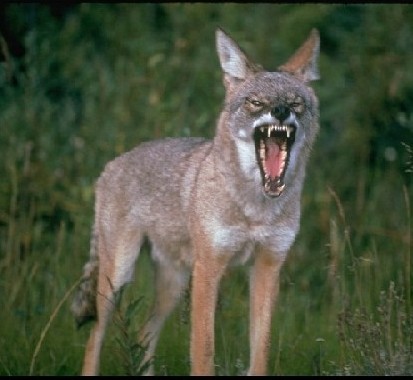Most people don’t choose their religion, but are born into family’s with certain beliefs and grow up believing the same. As we grow up many people begin to question these beliefs and practices and may depart from what their parents believe, or change the way they feel about their families way of practicing. My family is not religious. We don’t believe in god, and we never went to church. I think the only religious literature in our house was an old I Ching Book of Changes, left over from the sixties. We were not religious, we were vegetarians. It was the comprehensive belief system we practiced every day, and in many ways, defined our family.
We weren’t fundamentalist vegetarians; we used leather and ate eggs. We didn’t care, or weren’t aware of animal rennet in cheese and ate marshmallows containing gelatin. It was fine for other people to eat meat, but my brother and I were taught that meat is not food. It is the flesh of dead animals, and you do not put it in your mouth. My mom even went so far as to refer to meat as “negative energy,” I’ve never had any idea what that means but being a vegetarian kid definitely felt different. Growing up in liberal diverse Los Angeles, in the late 80s, I didn’t know anyone else who was vegetarian. I didn’t even know anyone who knew what a vegetarian was. The other kids at school all seemed to have baloney or turkey in their sandwiches. I would sit at the lunch table, reluctant to open my He-Man lunch box, afraid of what might be in my sandwich. Despite of my public self-consciousness, I accepted and liked being vegetarian at home. I ate every strange vegetable concoction put in front of me and used to rub it in the face of my brother, who was not an enthusiastic eater of plants, by saying “thank you mama for making such a delicious dinner.” What a suck up I was! I loved animals and was proud not to eat them, but I didn’t like being different. I was very uncomfortable about people scruitinizing my food; I didn’t want to be questioned about it and avoided eating around people I didn’t know.
In high school I was still insecure the weird food I ate, but by this time there were a few other vegetarians around; Girls who loved cute animals or wanted to rebel against red-blooded barbecuing dads. It was good to have others eating ketchup-mustard-and potato chips on a bun at barbecues, but these recent converts were not the same. They had chosen their alienation. They knew what bacon tasted like, and they were righteous. They were giving up something delicious and inconveniencing their parents to save piglets. By age twelve I had no delusions about the humanity of being vegetarian. I knew what happened to dairy animals, I wore leather, I still ate marshmallows with gelatin. I was not vegetarian because I thought it was important or right, I was vegetarian because I had been taught that dead animals weren’t food.
College is when a lot of people leave their upbringing behind, physically and metaphorically. In my second year of college I noticed that my best friend and roommate, who did not believe in god, hung a rosary around her bedpost. I often questioned her about this contradiction. She never asked me why I didn’t eat meat. The answer would have been the same: It’s hard to change what you’re brought up to believe, even when those beliefs stop making sense.
In college Vegetarianism was a non-issue. It was the 21st century, people were Vegan, people were transgendered, people were astrologists. Being Vegetarian wasn’t part of my identity. When someone found out I hadn’t ever eaten meat there was the usual disbelief and pity, followed by the same twenty questions I’d been asked all my life. I was not fighting vegetarian battles; I didn’t believe I was helping any environmental or humane cause. I would always answer, “I am vegetarian because that is how I was brought up.”
Two significant events in my dietary development did happen in College, though they did nothing at the time to change my practice or beliefs. The first was that I realized that I might spend my entire life as a vegetarian. This realization was followed by the idea that I might not spend the rest of my life as a vegetarian. Since vegetarianism wasn’t a big part of my identity this wasn’t really a big deal. I didn’t care If I ate meat or not. But the seed had been planted… In my third year of college I intentionally ate a single bite of chicken. I figured I should at least try it. Maybe it would change my life. I sat with the fork inches from my mouth for about three minutes, trying to make myself eat it. I was terrified. Finally I put the fork in my mouth and chewed. It tasted like nothing. The world did not end. It was the most anticlimactic event of my life. It changed nothing.
So how did I go from lifelong vegetarian scared of eating meat, under whelmed by the taste of chicken, to raising, eating and selling top quality lamb, beef, and mutton? The journey was long and strange, covering five years, three continents, and thousands of miles.
Next time…I can kill it and cook it, but can I eat it? Coming soon: Tales of a Lapsed Vegetarian. Part II An American Vegetarian in London, or How to say “Vegetarian” in Polish.







